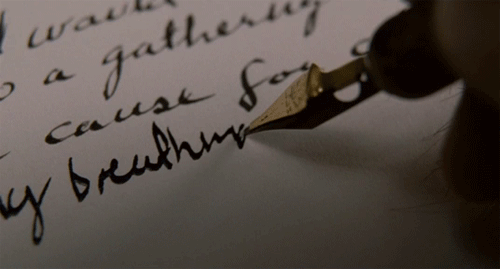Paula Sánchez Morlsesín
Tips and Advice
- When browsing the net I found a piece of advice I especially liked, which is the following:
"When there is a problem don't just complain about it. Don't do something about it either, change it! Doing something usually isn't enough. If the element broke on your stove, would you go buy the replacement part then be satisfied because you did something about it? No, nor should you be satisfied with 'doing something' about life's bigger problems. Do you feel that people are wasting too much of their lives on their electronic devices? Don't be satisfied with making a youtube video about it, to try and get the word out there, Keep going until the problem is fixed! Too often people 'do something' then stop as if that was enough.
Everytime someone has screwed up their life in some way or another, figure out what went wrong, then make sure you don't follow the same path. You'd be surprised just how many people have actually screwed up in life once you start paying attention. If they are unhappy or unsatisfied, something's gone wrong. Don't make the same mistakes as those around you!"
Source: https://www.quora.com/What-is-the-best-piece-of-advice-you-could-give-someone-about-life
2. And the text I chose that contains modal verbs is an excerpt I took from 'Twilight', a book written by Stephenie Meyer:
"Do you remember Billy Black down at La Push?" La Push is the tiny Indian reservation on the coast.
"No."
"He used to go fishing with us during the summer," Charlie prompted.
That would explain why I didn't remember him. I do a good job of blocking painful, unnecessary things
from my memory.
"He's in a wheelchair now," Charlie continued when I didn't respond, "so he can't drive anymore, and he
offered to sell me his truck cheap."
"What year is it?" I could see from his change of expression that this was the question he was hoping I
wouldn't ask.
Now, I will explain the specific meaning they have in the context of the sentence they are used.
- Would: in the sentenced it is used, it expresses the consequence of the situation the character refers to.
- Can't: is used to express prohibition in the present and in general time.
- Could: could is used to express permission and prohibition in the past.
- Wouldn`t: is the contraction of 'would not',' and expresses an action that did not in fact happen. Someone was not willing for something to happen.
3.The activities I have done during these last four weeks to improve my English, apart from attending English language classes and working with this blog, have been the regular ones, such as watching some shows in their original language (which is English), chatting with my friends in English on the SNS and listening to some British songs. In addition, I have also started to read our compulsary reaing book for English language. And regarding speaking I have just spoken English once, and it was because a tourist needed my help to get to a place in Murcia.














